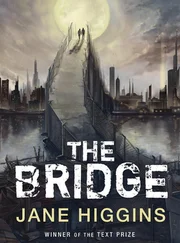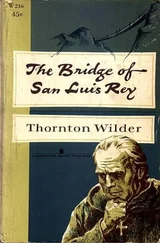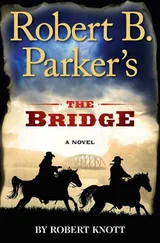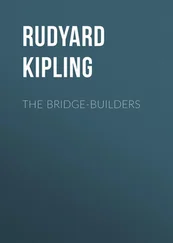But she fell in love with Ian and all her insecurities resurfaced.
‘It’s a crush, you’ll get over it. And he’s old and not even that good-looking,’ Ash said.
For more than a year Ian was the target of her affections, the main protagonist of her fantasies. She switched subjects to be in his classes. She went to demonstrations to watch him from the sidelines and accidentally bumped into him when he was on yard duty at lunch time. She imagined herself knocking on Ian’s door. She imagined following him down the hallway of his house, past the Save the Whale , Climate Change Is Here Now , and Plant a Tree and Breathe posters on the walls, to his bedroom, where they fell onto his bed, where they kissed and fucked and where over and over he declared his love.
What was the difference between fantasy and reality? Was it possible to make fantasies come true?
Since he left the school, Jo hadn’t seen Ian. She was grateful that he introduced her to environmental design, to the possibility of regenerating the industrial landscape. But she wasn’t going to be an activist. She wasn’t going to make the industrial suburbs more liveable. She would be lucky to get a job she didn’t hate.
‘Maybe if you made a list of possibilities,’ Mandy suggested.
‘Sure, I’ll do that.’
‘ Jo .’
‘What?’
‘I am trying to help.’
‘Mrs Chang said I could find something I don’t mind doing. Like you. You don’t mind the deli, do you?’
‘Jo, there is no need to be like that.’
Jo didn’t respond, and they sat there for a while in silence.
‘What do you have planned for today?’ Mandy asked in a conciliatory, change-the-subject tone that Jo found even more irritating.
‘It’s Saturday — my plan’s to go to work, like I do every Saturday.’ She didn’t look up. She wanted to say, Why do you ask such stupid questions?
‘And after?’
‘Studying. Then going out with Ash to Rosie’s party,’ Jo said.
‘I haven’t seen Ashleigh for ages.’
‘That’s because we’ve got so much fucking — sorry, so much homework.’
‘I know it’s a hard year, but it’s almost over.’
It wasn’t just that it was a hard year. Ash had changed; she was more distant, less available. The friendship was waning. Like the first drop in temperature after a long warm summer, the change was subtle at first. No storms. No heavy rains. But Ash was slipping out of Jo’s grasp. That was real. It wasn’t her imagination. Hanging on to it, pulling it back, was like being on the losing side of one of those tug-of-war games they played when she was in primary school — the more effort she made, the less available Ash became. Whenever they saw each other on a weekend, Jo planned to say something. Say something. Only she didn’t, and the periods of anxiety had grown longer and more frequent.
For months, Jo had avoided her mother’s questions about Ash. What could she say anyway? Even if she did talk to Mandy, what help would Mandy be? The act of confiding was foreign to Jo, even with her mother, even when she was young. When the anxiety attacks first started, she tried explaining to Mandy. The rising panic that came with sweat, and nausea, and dizziness. Mandy didn’t understand. She was sympathetic and concerned, but dismissive: ‘You don’t have anything to worry about.’ Jo understood there were problems her mother couldn’t fix.
And it wasn’t as if she and Ash had stopped being friends. They weren’t fighting. Not like they did when they were younger, those I never want to see you ever again fights. Those I wish you’d disappear down a big hole forever fights. They weren’t hanging out after school and on weekends, but they were together every day at school. Just yesterday, at lunchtime, they had been together with Laura and Mani at their usual bench, on the edge of the oval, and everything had seemed normal. They’d talked about going to Rosie’s party together, about what they would wear, who was going to take responsibility for organising a card to go with their gift, a voucher for a facial at the local day spa.
‘What if I come to your place to get ready? We can drive around and pick up Laura and Mani on the way?’ Ash had asked.
‘No Kevin?’
‘I thought you’d prefer it to be just us.’
‘It’s not that I don’t like Kevin —’ Jo began.
‘No boys! We can all go single,’ Laura interrupted.
‘Sure,’ Mani said, grinning. ‘You just want to flirt all night.’
They all laughed, and Jo watched Ash laugh. Was Ash just pretending they were friends?
‘Will you be home for dinner?’ Mandy asked.
‘No idea — don’t worry about dinner. I’ll find something to eat.’
‘Fine.’
‘Fine.’
‘It’s 7.20,’ Mandy said. ‘You’re gonna be late.’
‘Not if I run.’ Jo dropped the spoon into the half-eaten cereal, stood up and grabbed her phone, and ran towards the door.
‘Have a good day,’ Mandy called out, but Jo was gone, the front door slamming shut.
It was almost noon, and the Two Hands Café in Yarraville was overflowing. Late risers were sitting down to massive plates of eggs and bacon, smashed avocado, and sautéed mushrooms, and filmgoers were eating quick lunches before the early afternoon screenings. There were long queues for takeaway and tables. Jo was clearing plates, her back to the door, when Ash’s sister, Jane, tapped her on the shoulder. Ash’s mother, Rae, dressed in her designer activewear — stripped leggings and a black top that Ash had told Jo cost a fortune — was standing at the end of the queue waiting for a table.
‘Hey,’ Jane said, ‘do we get to jump the queue because we’re, like, family? I’m practically your sister. And I’m starving.’ Jane was wearing the baggy ‘Thrasher’ t-shirt that Jo had given her for her thirteenth birthday. Jo noticed the glare from a woman standing ahead of them in the queue.
‘She’s joking,’ Rae said, loudly enough for the woman to hear. ‘How are you, Jo? I haven’t seen you for a few weeks.’
‘I’m good, just so much homework. No time to breathe.’
‘I’m going to give VCE a miss,’ Jane said.
‘We’ll see about that.’ Rae smiled at her daughter and Jane frowned.
‘I’m going to be a pro skater. I don’t need school for that.’
Rae winked at Jo. Jane elbowed her mother. ‘Just wait and see.’ And all three of them laughed.
‘They might have degrees for skateboarders by the time you finish school,’ Jo teased.
‘But she thinks she’s already an expert,’ Rae said.
The bell in the kitchen rang. ‘Argh, sorry, I have to go,’ Jo said. ‘I’m sure you’ll get a table soon. See ya.’
‘Bye, Jo,’ Rae said. ‘Say hello to your mum, I haven’t seen her in ages.’
Jo headed for the kitchen, where the meals for one of her tables were ready to serve. Then a table asked for the bill and another table for water and a third, a large group of what looked like an extended family, wanted to order. By the time she had a chance for a breather, Jane and Rae had been seated at the other end of the restaurant. She was run off her feet for the next half hour and didn’t get a chance to talk to them again.
Jane had said ‘like family’, but they weren’t family, even though until recently she had spent at least one, sometimes two, nights a week eating and sleeping at their house over the last six years. If she and Ash stopped being friends, she wouldn’t any longer have anything to do with Ash’s family. What would they be to her if she and Ash stopped being friends? Would they slip away, become acquaintances, and then finally strangers?
Normally Jo worked an eight-hour shift, 7.30 to 3.30 or 8.00 to 4.00, but her boss, Ted, had reluctantly agreed to a five hour-shift, because she needed to finish her English essay.
Читать дальше












